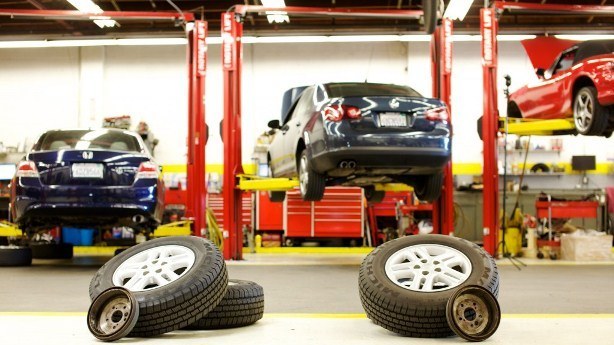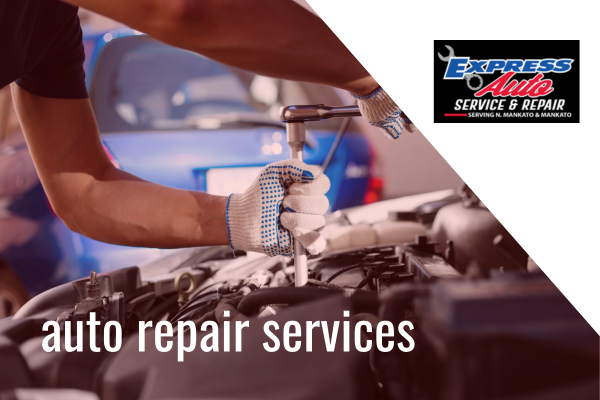All Categories
Featured
Brakes are perhaps the most vital safety and security feature of any kind of lorry. Without reputable brakes, even the most powerful car can come to be a danger on the roadway.
- The Significance of Regular Brake Inspections. Brakes undertake continual wear and tear with every use, whether you're driving at broadband on the highway or travelling with city roads. Over time, brake pads, blades, and other elements use down, which can impact stopping performance. Without normal assessments, you might not notice the steady reduction in performance up until it's far too late.
Routine brake inspections allow you to capture issues early, ensuring that your brakes stay responsive, reliable, and safe. Prompt evaluations can also conserve you money by attending to minor problems prior to they end up being expensive repair services.
- Common Signs That Your Brakes Need Interest. While regular brake evaluations are necessary, there are some warning indicators you can look out for to know when it's time to set up a check-up:
Squeaking or Grinding Appears: Piercing squeaks or grinding sounds when using the brakes are typically indications that your brake pads are broken and require substitute. Vibration or Pulsation: If you really feel resonances in the steering wheel or the brake pedal, it might indicate distorted rotors, which might need resurfacing or replacing. Soft or Spongy Brake Pedal: If the brake pedal feels abnormally soft or spongy, there might be air in the brake lines or an issue with the master cyndrical tube. Drawing away: If your automobile draws to one side while braking, this could be triggered by irregular brake pad wear or a concern with the brake fluid. Raised Stopping Range: If it takes longer to stop than common, it might indicate that the brake pads are worn, the fluid is low, or the blades are harmed. If you notice any one of these signs and symptoms, it's finest to have your brakes examined promptly.

- Trick Parts Checked During Brake Inspections. During a brake evaluation, a professional will check numerous important parts of the stopping system to make sure every little thing is functioning appropriately. Right here are the key elements included:
Brake Pads: One of the most typical factor for bad stopping performance is damaged brake pads. Checking the thickness of the pads is a concern throughout every assessment. Brake Rotors: Blades need to be smooth and complimentary of grooves or splits. Any kind of significant damage to the rotors could bring about endangered braking performance and unequal pad wear. Brake Liquid: Low or contaminated brake liquid can impair braking efficiency. The professional will certainly inspect the fluid degrees and top quality and replace it if required. Brake Lines and Pipes: Brake lines need to be devoid of leakages or cracks. Any damage to the lines can cause loss of brake liquid, causing brake failure. Brake Calipers: The calipers use stress to the brake pads. They ought to be evaluated for signs of wear or leakages to guarantee they are functioning appropriately. Routinely inspecting these elements assists maintain your brake system in peak problem, allowing you to stop your automobile securely and efficiently.
- How Usually Should You Have Your Brakes Examined? The general referral is to have your brakes inspected at the very least yearly or every 12,000 miles, depending on your driving practices. Particular driving problems might call for more regular assessments:
Hefty Traffic: If you commonly drive in stop-and-go web traffic, your brake pads will use down faster. Hill Driving: Driving on steep roadways needs even more regular braking, which can cause your brakes to wear extra quickly. Towing or Hauling Heavy Plenties: If you frequently bring hefty tons, your brakes will certainly experience extra stress and require even more constant inspections. If you observe any one of the caution indicators stated earlier, do not await the next scheduled inspection-- have your brakes checked promptly.
- The Effects of Neglecting Brake Inspections. Neglecting routine brake inspections can lead to significant repercussions. A falling short brake system can result in decreased stopping power, which increases your danger of mishaps.
In the most awful instance, driving with harmed brakes can result in complete brake failing, putting you and other vehicle drivers at danger. Regular brake inspections are a tiny financial investment that can save your life and prevent expensive fixings.
- Conclusion: Keep Safe with Routine Brake Inspections. Brakes are not something you want to take opportunities with. A trustworthy braking system is essential for secure driving, and regular brake examinations are a simple method to ensure that your cars and truck stops when you require it most. By remaining on top of brake upkeep, expecting cautioning indicators, and having your brakes checked at the advised intervals, you'll protect both your lorry and your security.
Do not wait till your brakes begin to fail-- timetable normal brake inspections and maintain your car in optimal condition for years to come.
Latest Posts
Explore Montclare Auto Repair’s Premier Car Care Solutions and Why Drivers Choose Them
Explore Best Auto Repair Care in Chicago – Drive with Confidence
Reputable Industrial Roofing Services by Weathercraft
More
Latest Posts
Explore Montclare Auto Repair’s Premier Car Care Solutions and Why Drivers Choose Them
Explore Best Auto Repair Care in Chicago – Drive with Confidence
Reputable Industrial Roofing Services by Weathercraft
